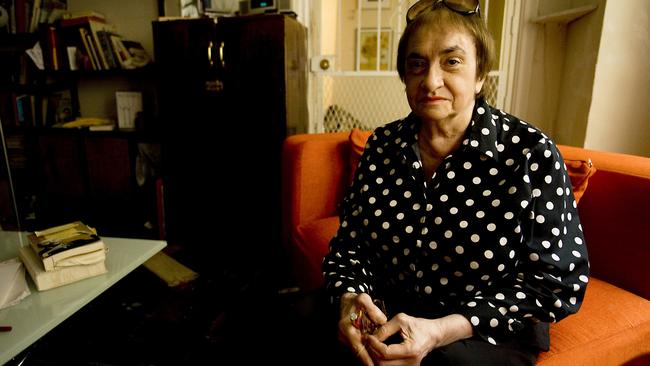How writer, forger and thief Lee Israel fooled the literary world
WHEN Lee Israel’s career as a writer began to fail, she had a choice: Get a job with a steady pay. Or hatch a much more desperate and deceptive plan.

Upcoming Movies
Don't miss out on the headlines from Upcoming Movies. Followed categories will be added to My News.
WHEN Lee Israel’s career as a successful writer began to fail, she faced a fork in the road: Get a normal job with a steady pay. Or start stealing priceless letters written by famous people and forge new ones pretending to be them.
Deciding punching a clock was for chumps, she went with the second option.
Israel’s life as a writer, forger and thief will now play out on the big screen, with Melissa McCarthy this week signing on to play the author.
Despite some career highs in the ‘70s and ‘80s as a successful biographer — profiling actresses like Katharine Hepburn, Tallulah Bankhead and cosmetics executive Estee Lauder — Israel’s career slumped by the ’90s following a string of poor reviews and writers’ block. That’s when her life became more interesting than any novel she could write.
“She drank an awful lot — she was an alcoholic,” her friend David Yarnell, told the New York Times earlier this year following Israel’s death at the age of 75. “And she was very feisty, and people did not want to work with her.”
Israel began forging and selling hundreds of letters she claimed were written by everyone from Edna Ferber and Dorothy Parker to Noel Coward and Lillian Hellman.
And she did it extremely well. Israel would study her subject’s personal details and history and read the previous letters they’d written — noting their typing idiosyncrasies. She bought several old typewriters for authenticity and used vintage paper she’d tear out of old journals at libraries.
“She was brilliant,” Carl Burrell, a former FBI agent who led the investigation on Israel’s case told the New York Times.

Burrell recalled one of his favourite letters Israel wrote as Ernest Hemingway.
“He was complaining about Spencer Tracy being cast as the main character in The Old Man and the Sea.”
In another, Israel, pretending to be Noel Coward, described Julie Andrews as “quite attractive since she dealt with her monstrous English overbite”.
So she didn’t attract attention, Israel would sell the letters for about $50 to $100 each. In her 2008 memoir Can You Ever Forgive Me?, she said she produced about 400 letters over a year and a half.
When suspicion began to grow, Israel got in deeper. It was too risky to keep producing new letters, so she began stealing originals from archives and selling them.
“She would go into these libraries and copy the letter in question, go back to her home and fake as best she could the stationery and fake the signature, and then she’d go back to the institution and make the switch,” autograph dealer David H. Lowenherz told the New York Times. “So she was actually not selling fakes: She was substituting the fakes and selling the originals.”
But everything came crashing down.
Lowenherz became aware a letter he’d purchased from Israel, from Ernest Hemingway to Norman Cousins, was actually the property of Columbia University.
He alerted Columbia and the school realised their original had been replaced with a forgery. They looked up their records to see who had recent access to the letters. “He came back and said: ‘We have this card. It’s signed by Lee Israel’,” Lowenherz told the New York Times.
Following an investigation, Israel pleaded guilty in 1993 to one count of conspiracy to transport stolen property and was sentenced to six months’ house arrest and five years’ probation.
Fifteen years later, Israel reflected on the literary heist in her memoir.
“I still consider the letters to be my best work,” she wrote.
Originally published as How writer, forger and thief Lee Israel fooled the literary world



